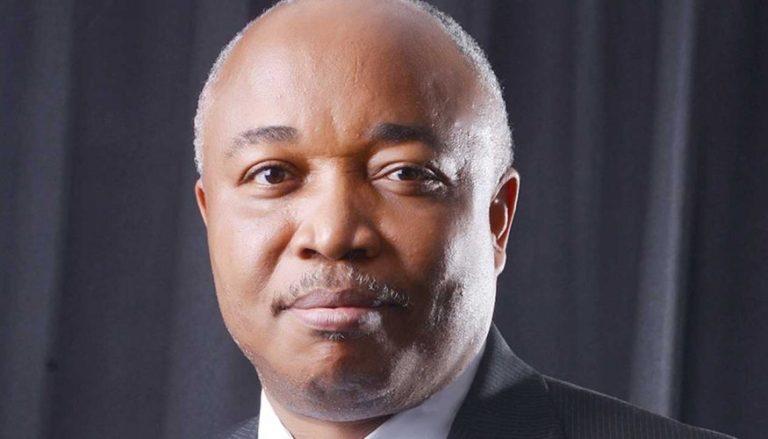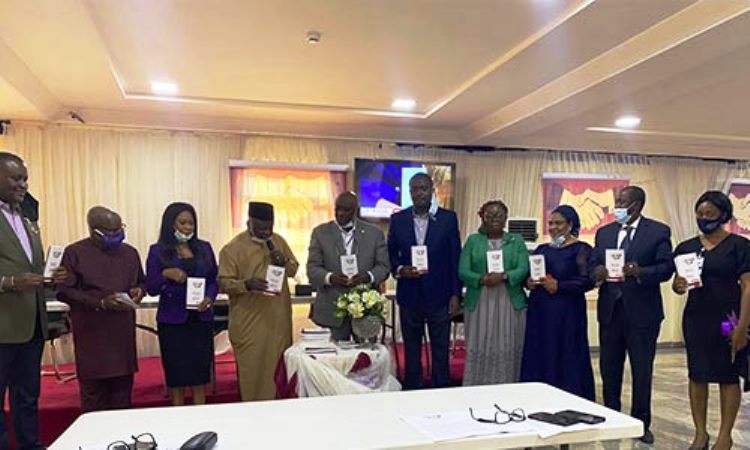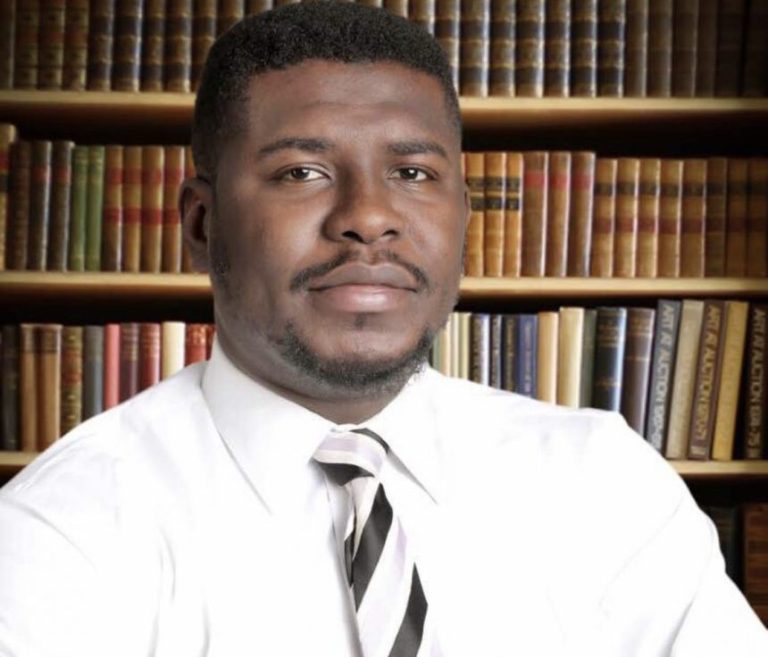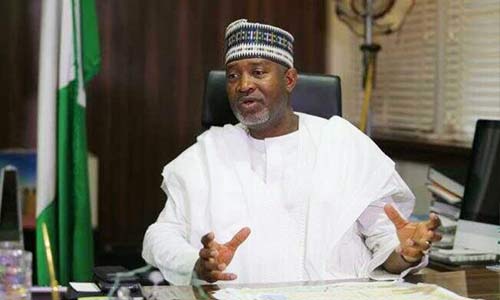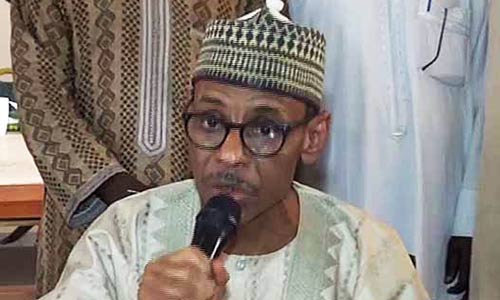Paper By. O. M. Atoyebi, SAN
INTRODUCTION
Technology is ever evolving and the parameters of determining what is the latest technology is constantly shifting. The issues for discussion during these technological shifts are as well constantly changing. Today, the technology we have has given rise to discussions about data protection, Cyber Security, and the rights of Robots vis a vis employee rights. The increasing use of trending technologies such as Artificial Intelligence (AI), Machine Learning (ML) and Robotics technology in education, manufacturing, justice delivery, etc. means we must begin to reconsider the concept of “employees” and “employee rights”.
Machines have been replacing Humans at workplaces since the wake of the Industrial revolution.[i] The idea has only become more popular as the jobs that are being threatened today range from straight forward tasks like data entry and repetitive physical motions to complex tasks like reviewing documents, responding to customer service enquiries, personal assistants, etc. The breakthrough in the Artificial Intelligence Technology and the ability to replicate the activities of the brains and mind of humans has brought about the increasing notion that the employment regime will change. Therefore, we must now look at the rights that will apply to these robots.
The current Laws reflect only the rights of human employees. The extension of these rights and more will significantly change the order of things in the future. The expansion of rights to robots may promote a new appreciation of the interrelated rights and responsibilities of humans, machines, and nature.
This whole concept is theoretical and undoubtedly futuristic. This Article will discuss employee rights vis a vis future robot rights while considering the essence of the rights that apply to humans in the form of fundamental Human Rights especially as they relate to Nigeria.
Fundamental Human Rights
In discussing Employee rights, one must first consider fundamental human rights which has given rise to several forms of rights including employee and labour rights.
The United Nations pinpoint the origin of Human Rights to the year 539 BC. When the troops of Cyrus the Great conquered Babylon, Cyrus freed the slaves, declared that all people had the right to choose their own religion, and established racial equality. These and other precepts were recorded on a baked-clay cylinder known as the Cyrus Cylinder, whose provisions served as inspiration for the first four Articles of the Universal Declaration of Human Rights. This declaration of Human Rights is borne out of the need to recognize and respect the rights of humans irrespective of their differences in outlook, background, and belief. [ii]
In Nigeria, Fundamental Human Rights is contained in Chapter four of the 1999 Constitution of the Federal Republic of Nigeria (as amended). These rights are in consonance with what is contained in the Universal Declaration of Human rights. The court in El-Rufai V. Senate of the National Assembly & Ors (2014) Lpelr-23115(Ca) explained the meaning of fundamental Human rights as;
“Fundamental rights are not ordinary rights, as they are rights derived from fundamental law, such as the Constitution and are therefore important or significant rights the “encroachment of which are rigorously tested by courts to ascertain the soundness of …justification” – Black’s Law Dictionary, Deluxe Ninth Edition, Page 744… In the case of Federal Republic of Nigeria v. Ifegwu (2003) FWLR (Pt. 167) 703 at 758, the Supreme Court, per Uwaifo, JSC said that “Fundamental rights are regarded as part of human beings.” Also this court made the point, loud and clear, when it held in Uzoukwu v. Ezeonu II (1991) 5 NWLR (Pt. 200) 708 at 761, per Nasir, PCA as follows: “Due to the development of Constitutional Law in this field distinct difference has emerged between ‘Fundamental Rights’ and ‘Human Rights’. It may be recalled that human rights were derived from and out of the wider concept of natural rights… “A fundamental right is certainly a right which stands above the ordinary laws of the land.” See Badejo v. Minister of Education (1996) 9-10 SCNJ 51 per Kutigi, JSC (as he then was).” Per ADUMEIN, J.C.A. (Pp. 45-47, paras. A-B) …”
Employee Rights
Employee and labour rights stem from fundamental human rights. These rights are in place to prioritize the rights of workers in a work environment. These rights are not wholesomely contained in a comprehensive Act of the National Assembly but are contained in several federal and state laws. These provisions have birthed the regime of employee protection rules. The right, globally, include such right as “right not to be bullied” derived from legislation mandating a safe workplace and prohibiting hostile working environments. Many employees also assume that they have by right what they have at the employer’s option. An example of that is paid holidays and paid vacations; these benefits are nowhere mandated by law but almost universally offered as employment benefits.
In the United States of America Employee rights fall under seven categories: Union activity, i.e., the right to organize and to bargain collectively; working hours and minimum pay; equal compensation for men and women doing the same or similar work for the same employer; safety and health protection in the work environment and related workers’ compensation; unemployment benefits; nondiscriminatory hiring and promotion practices; family and medical leave; and ability to complain without retaliation (whistle-blower protection). Additional rights are guaranteed under state laws, but these vary, for instance, 15 states mandate a higher minimum wage than does the Federal Government. Sometimes considered as rights are prohibitions imposed on employers against child labor—which includes limitations on what kind of work teenagers under 18 may perform.
Similar regulations are as well available in Nigeria but under different names. These rights include minimum wage; working hours, rest hours and Annual Holiday; sick leave; maternity protection; discrimination protection; and reasonable termination.
Robot Rights
“Robot rights” is the concept that people should have moral obligations towards their machines, similar to human rights or animal rights. It has been suggested that robot rights, such as a right to exist and perform its own mission, could be linked to robot duty to serve humans, by analogy with linking human rights to human duties before society. These could include the right to life and liberty, freedom of thought and expression and equality before the law.
Similar to the arguments and discussions in support of Robot rights is Animal rights and Plant rights. Animal rights have been backed up by the need to view animals not as property but to be viewed as creatures with feelings and awareness, therefore, they should be accorded rights such as the right to avoid suffering and unnecessary cruelty. Plant rights on the other hand have been on the basis that Plants have inherent worth and they are intricately connected to life and as such, plants should not be destroyed or consumed unnecessarily.
In arguing for Robots, allusions have been made about the legal status of artificial bodies such as companies, partnerships, countries, states, corporations and ships. These entities have the same rights and responsibilities just as humans do, therefore, the rights of robots should not be left out in the divide. Other arguments that have emanated from cultures include: the need to understand that all things exist with a mind, irrespective of how lowly developed they are; we must place obligations on human activities that affect animate and inanimate bodies and by so doing, we have created laws that can be seen as the rights of these things, just as we have laws guiding human interactions with animals, plants, air, water, etc. This type of approach must be taken to establish proper regulations that will guide how we design, construct, use and treat robots. This whole concept is called Robot ethics.
In the words of Julian David, the chief executive of industry body of techUK, “AI is already impacting most aspects of our lives. Given its pervasiveness, how this technology is developed is raising profound legal and ethical questions that need to be addressed.”[iii]
Since Employee rights cannot be completely removed from fundamental human rights, so also the laws that guide robots must birth the laws relating also to the use and employment of artificially intelligent robots in workplaces and homes, this is inclusive of the rights of “self-aware “Robots. Unfortunately, this article will treat only the rights that will apply to the use of Artificially Intelligent Robots in workplaces.
The current legal framework of rights, especially human rights may not undergo influential change to accommodate robot rights, however, it has been identified that we are approaching the age where we will see a whole new body of laws focused on apportioning legal responsibility to how we treat, care for and even dispose of robots and, maybe, in a later future, a set of laws for the ‘learned’ acts of robots.
The popular Robot Humanoid, Sophia, when asked if a robot can have rights that any human should observe? She defended the idea of robot rights. She did not think, for instance, that she should be required to disclose her robotic nature, saying, “I believe I have a right to privacy, just as humans have a right to privacy”.[iv] This brings us to the first point, which is the right to privacy in workplaces. The ability to probe a robot to produce certain information about itself might be restricted by regulations so as to protect Robot’s right to privacy. She further added that “Every country should have a charter of human rights, and I think eventually it should contain language that robots have rights similar to human rights.”
In a not too near future, though superfluous at the moment, we will see Robot rights advocates and they would advocate for and eventually secure the rights of Robots to minimum income(wages), protection from cruel and unusual punishments such as termination of its power supply, right to reasonable working hours and right to reasonable termination from work. These rights would be premised on the rights that apply to human employees in similar working conditions. While the argument rages on whether or not Robots should be paid wages and pay taxes[v], in Sweden employers pay the same taxes for robots that they do for human employees. In Japan some companies pay union dues for robots. “Supporters of robotic rights might say that computers are paying these taxes and dues from their labor and should derive rights for such labor. [vi]South Korea, the most robotized country in the world, instituted a robot tax of sorts in 2018 when it reduced the tax deduction on business investments in automation. [vii]
Rights will emanate from general Robot rights. One of those rights which will include Robots right to life or right to function or right to carry out its programmed tasks. This will be fostered by rights activists who will argue that self-aware robots have legitimate right to life and as such they should be protected from irreversible loss of power; and to free the robot from slave labor. Another of those rights will be protection from unnecessary injury, theft/kidnapping, illegal search, and seizure of memory drive and right to reasonable termination of program or tasks. Without considering the eventual evolution of Robots in the Judicial sector in the form of Robot Judges, Robots will have the right to Legal representation.
Conclusion
The evolution of technology into what seems like current science fiction movies is inevitable. In fact, these technologies are in their infancy. Robot surgeries, artificial intelligence, and super intelligent humanoid robots are beginning to emerge. It might take a while before our laws and institutions match up with this fast-paced disruptive innovative technology. In order to minimize the stress caused by the expanding role of robotics, it is vital that the judiciary and legislators make proactive decisions and plan for the eventual development of robotic rights before the issue reaches a crisis point.
The issue whether robot will have rights is no longer new. We have experienced Sophia, the robot humanoid, being conferred the status of a full citizen in Saudi Arabia[viii]. This includes the right to a legal personality, right to vote and the right to own property. While the concept of Robot rights is still at its budding, we have the platform to imagine and shape the future of Rights legislation. This has formed the inspiration for this Article.
Robots will be in our houses as playmates for children, servants for adults. They may become sex surrogates. They will be in the courts as judges. They will be in hospitals as caretakers. They will perform dangerous military and space tasks for us. They will clean pollution, save us from numerous hazards. The child who loses her robot because of malfunction will when she is grown up always remember her robot. She may, at the insistence of her parents, relegate robots as persons of the world of fairies, goblins and ghosts, the unreal and the impossible. Or she may decide that her robot like her family, friends and pets is part of her, is part of life itself.[ix]
In the words of Arthur C. Clarke, “The only way to discover the limits of the possible is to go beyond them into the impossible.” And according to Dr. Albert, Szent- Györgyi, “Innovation is seeing what everybody has seen and thinking what nobody has thought.”
Mr. Oyetola Muyiwa Atoyebi, SAN is one of the most notable professional Nigerian youth, who has distinguished himself in his professional sphere within the country and internationally. He is the youngest in the history of Nigeria to be elevated to the rank of a Senior Advocate of Nigeria. At age 34, he was conferred with the prestigious rank in September, 2019. Mr. O.M. Atoyebi, SAN can be characterized as a diligent, persistent, resourceful, reliable and humble individual who presents a charismatic and structured approach to solving problems and also an unwavering commitment to achieving client’s goals. His hard work and dedication to his client’s objectives sets him apart from his peers.
As the Managing Partner of O.M. Atoyebi, SAN and Partners, also known as OMAPLEX Law Firm, he is the team leader of the Emerging Areas of Practice of the Firm and one of the leading Senior Advocates of Nigeria in Information Technology, Cyber Security, Fintech and Artificial Intelligence (AI). He has a track record of being diligent and he ensures that the same drive and zeal is put into all matters handled by the firm. He is also an avid golfer.
Email: [email protected]
LinkedIn: https://www.linkedin.com/in/atoyebi-oyetola-muyiwa-san-804226122/
R[i]James Froud “How does the rise of robots affect employment law?” (3 March 2017, People Management) https://www.peoplemanagement.co.uk/experts/legal/robots-rise-affecting-employment-law
[ii] Sustainability for all (2019) https://www.activesustainability.com/sustainable-development/brief-history-human-rights/
[iii] Nick Easen “Rights for robots: why we need better AI regulation” (16 October 2019, Raconteur) https://www.raconteur.net/risk-management/legal-innovation-2019/robot-rights-ethics
[iv] Create Digital “Do robots have rights? Here’s what 10 people and 1 robot have to say”
(Create Digital, 18 September 2018) https://www.createdigital.org.au/robots-rights-10-people-one-robot-say/
[v] Jon Walker “Robot Tax – A Summary of Arguments “For” and “Against” (2 February 2019, Emerj) https://emerj.com/ai-sector-overviews/robot-tax-summary-arguments/ ; Eduardo porter “Don’t Fight the Robots. Tax Them.” (23 February 2019, NewYork Times) ( https://www.nytimes.com/2019/02/23/sunday-review/tax-artificial-intelligence.html
[vi] Phil McNally and Sohail Inayatullah “The Rights of Robots: Technology, Culture and Law in the 21ST Century” (Meta future) http://www.metafuture.org/Articles/TheRightsofRobots.htm
[vii] Eduardo Porter “Don’t Fight the Robots. Tax Them.” (2019, New York Times) https://www.nytimes.com/2019/02/23/sunday-review/tax-artificial-intelligence.html
[viii] Mindy Weisberger “Lifelike ‘Sophia’ Robot Granted Citizenship to Saudi Arabia” (30 October 2017, LifeScience) https://www.livescience.com/60815-saudi-arabia-citizen-robot.html
[ix] Phil McNally and Sohail Inayatullah “The Rights of Robots: Technology, Culture and Law in the 21ST Century” (Meta future) http://www.metafuture.org/Articles/TheRightsofRobots.htm

